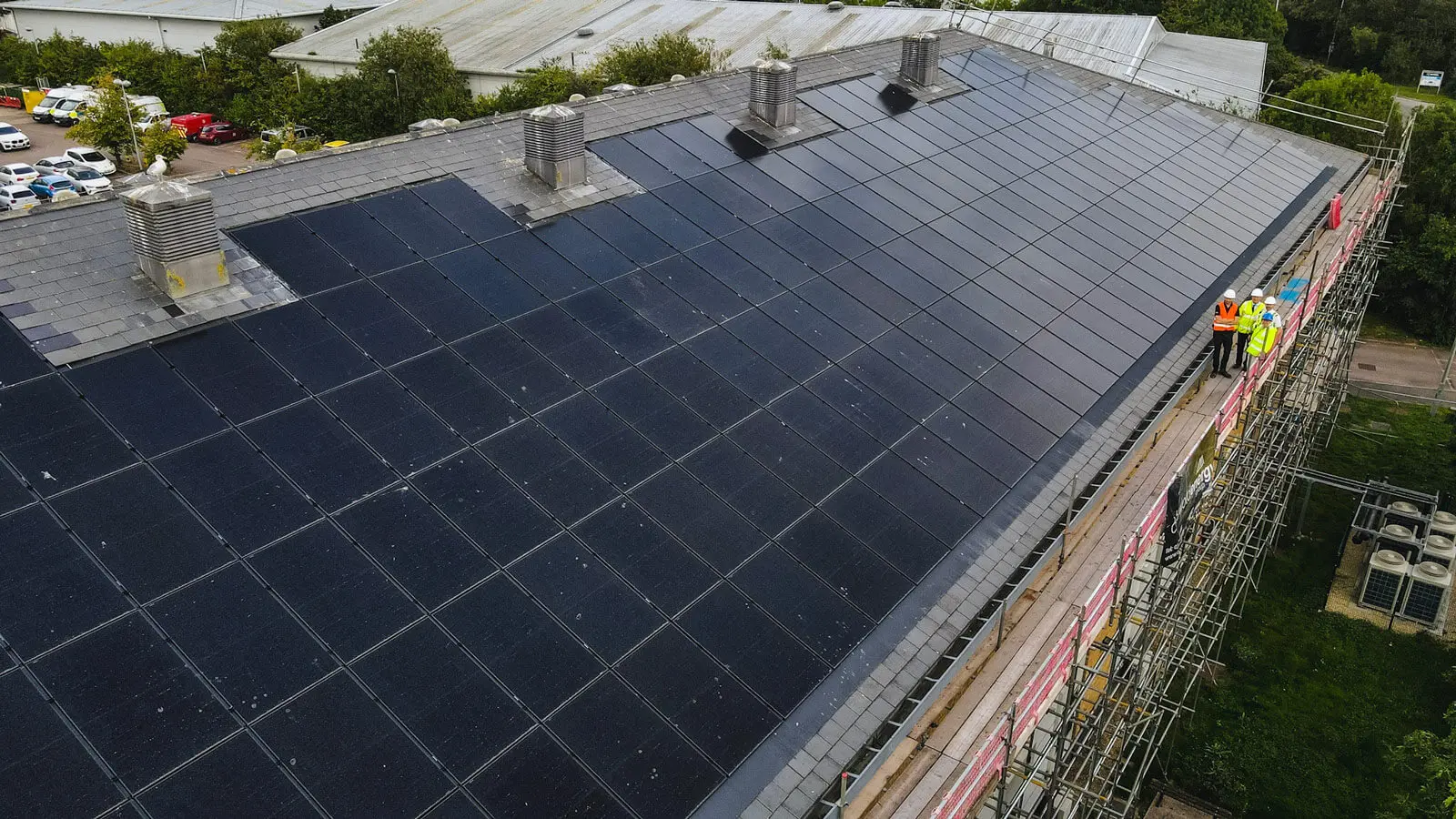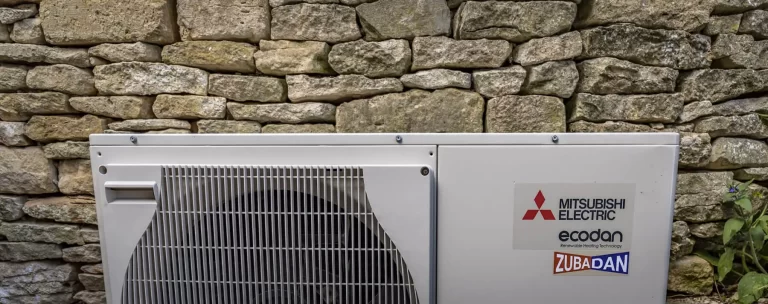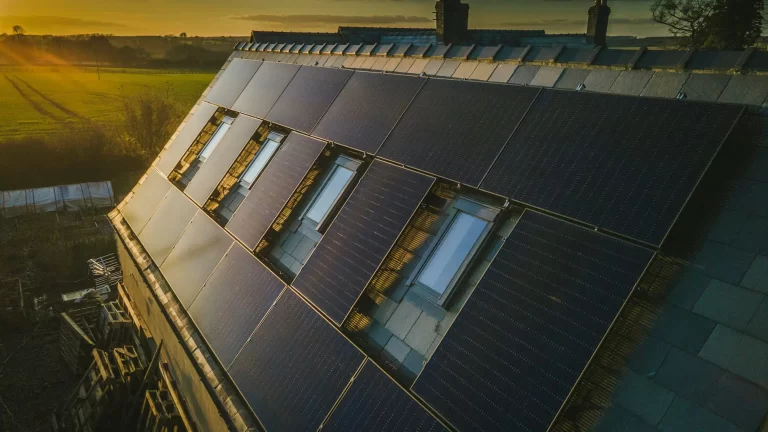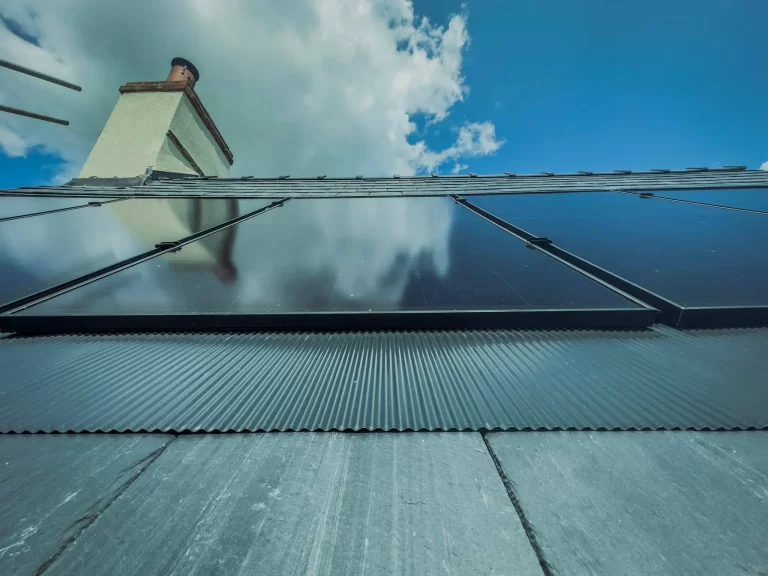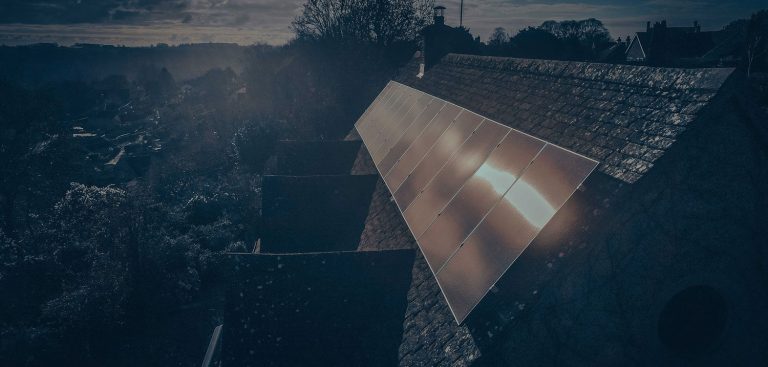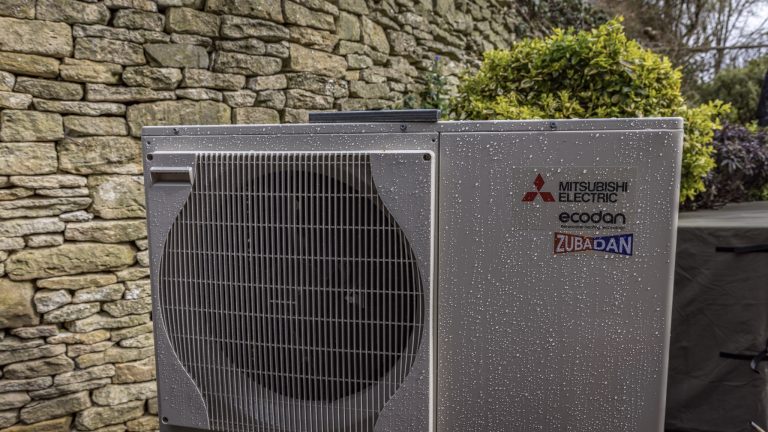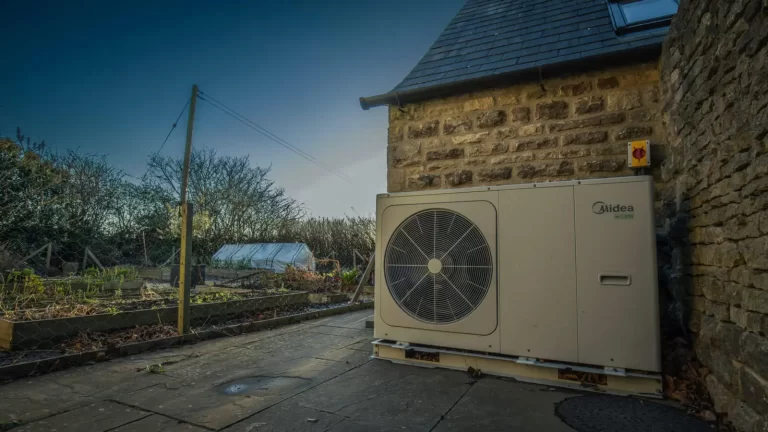In recent years, the shift toward renewable energy has become more than just a trend—it’s a vital transition for businesses looking to thrive and sustain in an eco-conscious market. Among the various green energy solutions, solar panels have surged in popularity, driven by their ability to significantly reduce carbon footprints and cut energy costs.
Solar panels, particularly commercial solar panels designed for business use, harness sunlight and convert it into electricity through a clean, efficient process. These panels consist of photovoltaic (PV) cells that capture solar photons and generate electrical power through the photovoltaic effect, offering a sustainable solution to energy needs.
By integrating commercial solar panels into your business operations, you not only contribute to a healthier planet but also position your business as a forward-thinking leader in environmental stewardship. This comprehensive guide will explore how you can leverage the power of solar technology to benefit your business, emphasising the practical and economic advantages of making the switch.
Assessing Suitability: Are Solar Panels Right for Your Business?
As renewable energy becomes an increasingly significant part of the UK’s energy supply, businesses are looking to stay ahead of the curve. Solar panels not only provide a dependable source of green energy but also signal your commitment to sustainability. Before deciding to invest in a solar PV system, it’s essential to carefully consider whether solar energy is the right fit for your business.
The Importance of a Professional Assessment
It’s a great idea to start by examining your latest utility bill to get a sense of your current energy usage and the associated costs per kilowatt (kW). This can provide valuable insight into the size and type of solar panel system that might suit your needs. However, while this initial step can give you a rough idea, it’s essential to note that a thorough assessment of your property’s suitability for solar panels requires professional expertise.
A reputable supplier will consider various key factors beyond just your energy usage. They’ll assess the physical aspects of your premises, including the condition of your roof, its orientation, and any potential shading issues. These factors play a crucial role in determining the feasibility of installing solar panels and optimising their performance. So, while examining your utility bill is a good starting point, it’s equally important to seek a professional consultation to ensure you receive accurate recommendations tailored to your specific circumstances.
Financial Considerations
When contemplating the transition to solar energy, it’s vital to evaluate the financial aspects thoroughly. This includes considering various questions such as:
- Are my energy bills high enough to justify the switch?
- Can I manage the upfront costs, or should I consider leasing options or a Power Purchase Agreement (PPA)? A Power Purchase Agreement is a financial arrangement where a third-party developer owns, operates, and maintains the solar panel system, and the customer agrees to purchase the electricity generated at an agreed-upon rate.
- What are the potential savings and payback period of installing solar panels?
Local Regulations and Incentives
Investigate local regulations and any incentives offered, such as tax breaks or rebates, which can significantly reduce initial costs and enhance long-term savings. You’ll find more about finance options and government incentives further down the article.
Public Image and Customer Perception of Solar Panels for Business
Consider how adopting solar energy will affect your public image. If your customer base is sustainability-focused, they might view your switch to solar power favourably, enhancing your brand’s reputation. Engage with your customers through surveys, emails, or social media to gauge their views on sustainable practices.
Market Research
Contact at least five different suppliers for quotes to understand the costs associated with a commercial solar panel system. Reading customer reviews on platforms like TrustPilot can provide insights into each supplier’s customer service and maintenance support.
By addressing these points, you can make a well-informed decision about integrating solar technology into your business strategy, positioning yourself as a leader in sustainability while potentially reducing energy costs.
Advantages of Commercial Solar Panel Installation
Installing commercial solar panels offers numerous benefits that can enhance your business’s operational efficiency, sustainability, and public image. Here’s how your business can benefit:
Cost Savings on Electricity Bills
- Long-term Financial Benefits: The initial investment in solar technology can lead to substantial cost savings on electricity bills over the long term. Businesses can anticipate significant reductions in their electricity bills, typically ranging from 30% to 65%. This leads to substantial cost savings, with reports from some businesses indicating savings of tens of thousands of pounds annually. By generating your own solar electricity, you depend less on the national grid, reducing your exposure to fluctuating energy prices.
- Reduced Operational Costs: Solar panels significantly decrease the amount of electricity you need to purchase, especially during peak daylight hours, directly impacting your bottom line positively.
Environmental Benefits
Reducing Carbon Footprint
By choosing to install commercial solar panels, your business minimises its environmental impact. Solar energy is clean and renewable, leading to a significant reduction in carbon emissions and reaching Net Zero goals. The amount of carbon a business can save per year by using solar panels depends on several factors, including the size of the solar panel system, and the business’s energy consumption.
On average, installing a commercial solar system can reduce CO2 emissions significantly. Medium-sized businesses might see annual reductions of around 9.9 tonnes per year, while small businesses could reduce emissions by approximately 5.8 tonnes per year. This is a considerable decrease, especially compared to the typical 15 tonnes of CO2 emitted annually by SMEs.
Consulting with solar energy professionals will provide you with a more accurate estimate based on your specific circumstances.
Demonstrating Corporate Social Responsibility: Utilising renewable resources like solar power reflects a commitment to sustainable practices, enhancing your company’s corporate social responsibility profile as well as aligning with global efforts to combat climate change and achieve Net Zero goals.
Potential for Additional Income
- Government Incentives: Governments offer incentives such as tax credits, rebates, or grants to businesses that adopt solar energy, reducing the overall cost of installation including the Annual Investment Allowance (AIA).
- Selling Excess Energy: If your solar panel system produces more energy than your business consumes, you can sell this excess solar electricity back to the national grid. This not only contributes to the future energy supply but can also become an additional source of income.
Annual Investment Allowance (AIA)
The Annual Investment Allowance (AIA) is a tax relief measure that allows businesses to deduct the full value of qualifying capital expenditure on plant and machinery, including solar energy systems, from their taxable profits in the year of purchase.
For solar installations on commercial properties, such as rooftop solar panels, businesses can typically claim AIA to cover a portion of the system cost.
The AIA covers up to 25% of the solar system cost, with a maximum allowance of £1 million per tax year. To be eligible for AIA, businesses must meet certain criteria, including:
- The solar energy system must be installed and operational within the same tax year in which the expenditure is incurred.
- The business must own the solar energy system, either outright or through a finance arrangement.
- The system must be used for the purposes of the business, such as generating electricity to power operations or offsetting energy costs.
It’s important for businesses to consult with tax advisors or accountants to ensure they understand the eligibility criteria and how to claim the AIA correctly. Additionally, businesses should keep in mind that tax laws and allowances can change, so it’s essential to stay updated on the latest regulations and guidance from HM Revenue & Customs (HMRC).
Enhanced Brand Reputation and Customer Perception through Solar Panels
- Improved Public Image: Adopting green technologies like solar energy can significantly enhance your business’s reputation. Customers and clients are increasingly looking to associate with brands that demonstrate environmental awareness and responsibility.
- Market Differentiation: Using solar power can differentiate your business in a competitive market, appealing to eco-conscious consumers and investors who prioritise sustainability in their decision-making.
Technical Specifications and Efficiency of Business Solar Panels
- Enhanced Power Capacity: Commercial solar panels are designed to handle larger energy demands, typically offering a power output between 400W to 600W. This is significantly higher compared to residential panels, which generally range from 250W to 400W.
- Size and Scale: The average size of a commercial solar panel is approximately 195cm x 99cm, which is larger than residential panels, typically measuring 167cm x 101cm. The increased size and efficiency make them particularly suitable for larger installations.
Understanding the Costs of Solar Panels
When considering the transition to solar energy for your business, understanding the associated costs is crucial. Here’s a breakdown of the financial aspects involved in installing commercial solar panels:
Initial Investment
- Equipment and Installation Costs: The average cost of a commercial solar panel installation in 2024, according to the Microgeneration Certification Scheme (MCS), has been approximately £9,790, or £1,278 per kilowatt (kW). This figure is a rough average, reflecting the diversity of installations and system sizes.
- Project Scope and Complexity: For small to medium-sized enterprises, the costs can vary significantly based on the complexity and scale of the installation. As systems increase in size, the installation becomes more intricate and, consequently, more expensive.
Factors Influencing Pricing
- System Size and Quality: The size of the solar system and the quality of the panels play pivotal roles in determining the overall cost. Higher-quality panels with better efficiency ratings may have a higher upfront cost but can provide greater long-term value.
- Additional Equipment: Components such as inverters and batteries, which are essential for converting and storing solar energy, also contribute to the total cost. The choice of technology and the capacity of these systems can affect the initial investment.
Operational Considerations
- Business Operations and Energy Needs: The size of your roof space and your specific business requirements will influence the cost. For instance, a business that operates around the clock will require a robust solar panel system capable of meeting high energy demands, potentially increasing the initial expenditure as well as battery storage capabilities that meet their business needs.
Financial Considerations
- Potential for Savings and ROI: The more power your solar panel system generates, the quicker you will begin to see a return on your investment through reduced utility bills and potential income from selling excess energy back to the grid.
- Financing Options: Various financing options are available to businesses looking to install solar panels. These may include loans, leases, or power purchase agreements (PPAs), which can help manage the upfront costs while still securing the benefits of solar power.
Meeting Commercial Solar Panels Installation Requirements
Successfully installing commercial solar panels involves careful consideration of various regulatory and structural requirements. Here’s a guide to ensure compliance and readiness for installation:
Compliance with Building Codes and Regulations
- Local Building Regulations: It’s essential to adhere to local building codes, which govern the installation of solar panels. While most businesses can install roof-mounted solar systems under Permitted Development Rights, ensuring compliance with specific local requirements is crucial.
- Planning Permission: For larger or ground-mounted solar systems, planning permission may be required, especially if the installation exceeds 9 square metres. Such installations are scrutinised for their visual impact, potential benefits to the local community, and environmental effects.
Structural Integrity Assessment
- Roof Space and Condition: Ensure your building’s roof has enough space and is structurally sound to support the weight and fixtures of solar panels. A professional assessment can determine if additional structural support is necessary.
Electrical System and Grid Connection
- Grid Connectivity: Connecting a commercial solar system to the local electricity grid involves specific requirements. The grid must be able to accommodate the additional capacity from your solar panel system, which may require upgrades or special arrangements.
- Electrical System Compatibility: Your existing electrical system must be evaluated to ensure it can integrate with the solar setup without safety or performance issues.
Permits and Paperwork
- Obtaining Necessary Permits: Depending on the size and type of installation, various permits may be needed. Roof-mounted systems typically face fewer hurdles, whereas ground-mounted systems, particularly those in visible or sensitive areas like conservation zones or near motorways, will likely require more extensive permissions.
- Special Considerations: If the property is located in a conservation area, is a historic site, or near a heritage site, additional permissions are crucial. In these cases, installations must not impact the aesthetic or historical value of the area.
Additional Guidelines
- Height and Location Restrictions: For ground-mounted systems not requiring planning permission, conditions include limiting the height of the solar array to no more than four metres and situating it at least five metres away from property boundaries. Additionally, in conservation areas or near heritage sites, the installation must not face or be visible from major roads.
Legal and Advisory Resources
- Consult Official Resources: The UK government’s Town and Country Planning Order provides detailed legal guidelines on planning and installing solar panels. Consulting these resources or working with a legal advisor can ensure that all legal bases are covered before proceeding.
Financing Options for Commercial Solar Panels
Commercial solar panels represent a significant investment, but various financing options and incentives make them more accessible for businesses. Understanding these options can help in making informed decisions about funding your solar installation.
Purchase Options
- Outright Purchase vs. Financing: Businesses can choose to buy solar panels outright or opt for financing solutions like loans or leases. An outright purchase requires a larger upfront payment but typically yields higher long-term savings. Financing, on the other hand, can reduce initial costs and spread payments over time.
- Power Purchase Agreements (PPA): A PPA is a financing arrangement where a business does not own the solar panels but agrees to purchase the solar power generated at a discounted rate. This setup eliminates upfront costs, allowing businesses to enjoy the benefits of solar energy without the immediate financial burden. Additionally, many PPAs offer the option to purchase the system at the end of the agreement, often after 25 years, potentially at no extra cost.
Government Incentives and Tax Benefits
- Regional Grants and Support Programs: Specific regional schemes offer grants and support for adopting solar energy. For example:
- Tees Valley: The Net Zero scheme offers fully-funded consultancy and up to £2,000 in grant funding for businesses within the Tees Valley area, covering councils like Darlington and Middlesbrough. The scheme encourages businesses to reduce their carbon footprint through various supports, including financial grants that close on 31 March 2025.
- Dorset: Low Carbon Dorset offers free technical advice and grants to local businesses, communities, and public-sector organisations to enhance energy efficiency and promote renewable energy adoption. Services include on-site technical support for up to 2 days, ongoing assistance, and free detailed energy surveys. Grants cover up to 50% of project costs ranging from £1,000 to £75,000, applicable to contractors, equipment, and installation. Additionally, free low-carbon workshops are available online and in person to foster energy project ideas. Eligible organisations must be located within the Dorset Council area and classified as SMEs, charities, or public-sector entities.
- Low Carbon Workspaces: Businesses in areas like Buckinghamshire and Milton Keynes can access grants up to £5,000 through the Low Carbon Workspaces program, which supports the transition to energy-efficient measures, including solar panel installations.
- Tax Benefits: Installing solar panels can also offer financial advantages through capital allowances, allowing businesses to deduct a percentage of the cost from their profits before tax, thereby reducing tax liabilities.
Long-Term Viability
- Durability of Solar Panels: Modern solar panels have a lifespan extending up to 40-50 years, providing long-term energy solutions. The lengthy lifespan paired with financing options like PPAs where ownership can eventually transfer to the business, offers a sustainable and cost-effective energy solution.
These financing options and incentives not only help mitigate the initial costs but also support businesses in making a responsible transition towards sustainable energy solutions, enhancing both their financial and environmental profiles.
Next Steps: Planning Your Business Solar Panels Journey
Embarking on the transition to solar energy involves a series of structured steps to ensure a smooth implementation. Here’s a brief guide to navigating these next stages:
Engaging a Professional to Conduct a Detailed Energy Audit and Site Assessment
- Energy Audit: An expert consultant will start by assessing your current energy usage and needs. This will help determine the scale and type of solar system that best fits your business.
- Site Assessment: They will also evaluate your site to check the suitability for solar installation, including roof condition, space, sun exposure, and potential obstructions.
Obtaining Quotes and Proposals
- Reputable Solar Installers: Reach out to multiple certified solar installers to get detailed quotes and proposals. Compare these to understand the costs, projected savings, and the scope of work each offers.
Securing Necessary Financing and Incentives
- Financing Options: Explore different financing options like loans, leases, or PPAs to find the best fit for your financial situation.
- Incentives: Identify any applicable government or regional incentives that could reduce costs and improve ROI.
Finalising Contracts and Scheduling Installation
- Contract Review: Once you’ve chosen an installer and financing option, carefully review the contract details with your chosen provider. Ensure all aspects of the installation and maintenance are clearly outlined.
- Schedule Installation: Coordinate with the installer to schedule a convenient time for the installation. Ensure that this timeline aligns with your business operations to minimise disruptions.
Following these steps will help set a clear path for your business’s transition to solar energy, ensuring all technical, financial, and logistical factors are thoroughly addressed.
Final Thoughts on Solar Panels for Businesses
Embarking on the journey to integrate solar energy into your business is a forward-thinking choice that promises substantial benefits. So consider gaining energy independence and reduce your business’s carbon footprint with solar panels.

